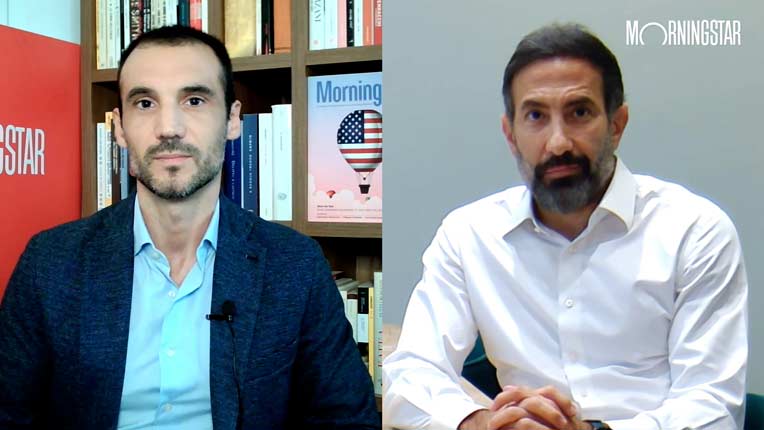Sunniva Kolostyak: Welcome to Morningstar. Should you invest in active or passive funds? Here to try and answer that question today is Monika Calay, director of passive strategies research at Morningstar.
Monika, always a pleasure to have you in the studio. You and your team have been working on the Active/Passive Barometer research. What does it tell us about how you should invest in active or passive funds?
Monika Calay: Sure. So, when we look at the research over the past decade, what we see is that active managers have had a hard time keeping up with passive funds. And I think there's two main reasons for that. The first is costs. Active funds are more expensive than their passive peers. And these costs compound over time, and they can really eat into returns. And then secondly, it's data availability. Data is now more widely available. Information spreads quickly. And so, it's harder for active managers to find those hidden spots, those hidden gems that others haven't seen yet.
SK: So last time we spoke about this, we discussed global equity income as a category where the active side is adding value. Is that still the case in this report? And are there any other categories within equities that people should be looking at?
MC: Sure. So, this is where things get interesting. Active managers have historically been successful in the global equity income category, and that still remains the case. I think the main reason for this is that passive funds have a structural bias towards small caps and towards value. And over the past decade, the market has favoured large caps and growth. And so, this was an area that active managers could exploit.
SK: And another category that people think active should be doing well in is emerging markets. Are they adding any value there?
MC: Well, let's talk about emerging markets. Emerging markets is an interesting one. So conventional wisdom states that active managers should have higher success rates in less efficient markets, such as the emerging markets. But actually, the data shows a different story. Over both short and long periods, active managers' success rates in the emerging markets have been lower than 50%, meaning that actually passive funds outperform. And I think the main reason, you guessed it, it's costs. Actually, active managers are pricey in this category, five-six times more expensive than their passive counterparts. But what's interesting is that over the past year, we have seen success rates increase in the emerging markets category for active managers. And this is because they've been strategic about their country allocation. So, they've been cautious on China and bullish on Brazil and those bets have played well into their favour.
SK: So, moving on from equities then, what about fixed income? How is it looking there?
MC: Sure. So, fixed income is a different ballgame. Active managers tend to fare better here. The bond market has its own quirks and active managers can exploit things like adjusting the portfolio to interest rate sensitivity or finding sweet spots in the credit world. And especially now with rates fluctuating, being nimble has been an advantage for active managers. And credit selection has actually been a real strong suit for active managers, especially in 2023 when we look at the investment grade category.
SK: So, this report, what does it tell us as investors about how we should allocate to active and to passive?
MC: It's not a one size fits all. And I think with the barometer, it's a fantastic tool for asset allocation. And we hope that it helps our clients to select where they should go passive and where maybe it is worth spending a little bit of extra time doing your due diligence to find a strong active fund.
SK: Monika, thank you very much for being in the studio today. For Morningstar, I'm Sunniva Kolostyak.





























